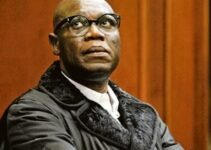As the sun rises on March 15, South Africa awakens to a new day and echoes its ever-evolving history. But what specific tales does this particular date whisper? We embark on a journey to uncover the threads woven into the fabric of March 15 in South Africa.

2001: Department of Transport launches Be Legal campaign
The national department of transport launched a seven month Be Legal campaign at the Jack Mincer Taxi Rank in Johannesburg, aiming to improve and legalise the taxi industry. The Be Legal campaign was a concerted short-term project involving all three levels of government: National, Provincial and Local. The campaign provided an opportunity for illegal minibus taxi operators to apply for operating licences in terms of the National Land Transport Transition Act and to subject the whole industry to regulation and effective law enforcement.
1994: IFP makes election threat
Officials of the Inkatha Freedom Party (IFP) announced that they would not present their list of election candidates to the Independent Electoral Commission (IEC) unless their constitutional demands were met. Following indications by opinion polls that the African National Congress (ANC) would win free and fair elections in KwaZulu-Natal, IFP leader Chief Mangosuthu Buthelezi cautioned that a liberation war was imminent if elections proceeded without him.
1985: SAAN announces its decision to close the Rand Daily Mail
The Rand Daily Mail newspaper was closed in April 1985. The South African Associated Newspapers (SAAN) made the announcement on 15 March 1985. SAAN, the company that owned the Rand Daily Mail, the Sunday Times and The Daily Express newspapers, allocated costs to each of its newspapers accordingly. However, it discovered that it had grossly miscalculated the costs allocated to the Rand Daily Mail. This forced the company to close down the paper. The Rand Daily Mail was a liberal newspaper that operated at the height of apartheid. It was the first newspaper to address the issues of Black people at the time. Its demise was caused partly by its strategy to increase sales. By the time it closed the company’s overdraft was R10 million, a month later, the company was forced to sell their building and presses when the overdraft soared to R40 million in an effort to remain solvent. The paper’s closure affected the Newspaper industry nationwide.
1978: Durban magistrate rules the death of Dr Haffejee accidental
A Durban magistrate ruled that no one was to blame for the death of a young dentist, Dr. Hoosen Haffejee, who died in police custody in August 1977. It was ruled that he had committed suicide. The death of Dr Hoosen Mia Haffejee while in police detention on 2 August 1977 was symptomatic of the brutality employed by the security police during Apartheid. Dr Haffejee was arrested by the police on suspicion of being a trained saboteur and of plotting to overthrow the state. According to police witnesses, Dr Haffejee became uncooperative while being questioned by the police regarding his involvement in activities to overthrow the state. According to the officers on duty on the night of his death, they discovered his apparent suicide at about four in the morning on 3 August 1977. An inquest into his death conducted during February 1978 concluded that he had committed suicide. On the 15 March 1978 the magistrate in charge of the investigation ruled that Dr Haffejee’s death was due to suicide. The family of Dr Haffejee believe that he was murdered in detention.
1974: Percy Montgomery is born
Percival Colin Montgomery was born in Walvis Bay, Windhoek (now known as Namibia). He is a retired Springbok and Rugby Union player. Montgomery became the first Springbok to score 800 test points and at one time, was the most capped Springbok player in the country. He was also the first player to earn a hundred caps. Montgomery announced his retirement from international test rugby in 2008 and has been working as kicking coach for the Springboks since 2009.
1961: South Africa withdraws from the Commonwealth
In 1960, a referendum was held in South Africa to decide whether the country should become a republic. The majority voted in favour of the change. In 1961, South Africa formally notified the Conference of Commonwealth Prime Ministers of its intention to become a republic, while also requesting permission to remain within the British Commonwealth. However, South Africa’s application for membership was opposed due to its apartheid policy. As a result, Verwoerd withdrew the application.
1946: The Asiatic Land Tenure and Indian Representation Act is introduced
In 1946, the Asiatic Land Tenure and Indian Representation Act was passed in South Africa which restricted Indians from occupying land outside certain areas and offered them limited parliamentary representation. This act caused an outcry in the Indian community and led to the formation of an anti-segregationist lobby. A passive resistance campaign was launched that lasted two years and brought the position of Indians in South Africa to the attention of the United Nations.
1922: Labour pioneer Samuel Long is arrested
Samuel Alfred (Taffy) Long, heralded as one of South Africa’s greatest working-class martyrs, was arrested after the defeat of Fordsburg during the Rand Revolt. Long was arrested for the murder of Alwyn Petrus Marais, a Fordsburg shopkeeper, and later also charged with high treason and the possession of loot. On 17 November 1922, he was hanged at the Central Prison in Pretoria, together with Herbert Hull and David Lewis, both strikers, who had been sentenced for the murder of Lt Rupert William Taylor. When they were brought from their cells, the three men sang the ‘Red Flag’, the official anthem of early socialists and communists in South Africa.
1922: The Rand Revolt strikers’ stronghold at Fordsburg Square falls to the government
The Rand Rebellion of 1922 was an armed uprising in South Africa that occurred during a period of economic depression following World War I. After a general strike was organized by white trade unions in Johannesburg, workers took over the cities of Benoni and Brakpan, as well as the Johannesburg suburbs of Fordsburg and Jeppe. The Communist Party of South Africa (CPSA) took an active role in the uprising. On 15 March 1992, the South African government’s artillery bombarded the strikers’ stronghold at Fordsburg Square, and in the afternoon, it fell to the government. The end of the revolt was declared at midnight on 18 March 1922.



